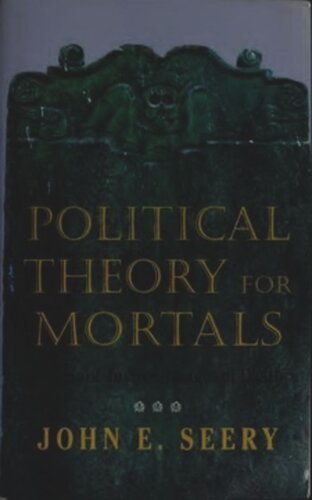

Most ebook files are in PDF format, so you can easily read them using various software such as Foxit Reader or directly on the Google Chrome browser.
Some ebook files are released by publishers in other formats such as .awz, .mobi, .epub, .fb2, etc. You may need to install specific software to read these formats on mobile/PC, such as Calibre.
Please read the tutorial at this link: https://ebookbell.com/faq
We offer FREE conversion to the popular formats you request; however, this may take some time. Therefore, right after payment, please email us, and we will try to provide the service as quickly as possible.
For some exceptional file formats or broken links (if any), please refrain from opening any disputes. Instead, email us first, and we will try to assist within a maximum of 6 hours.
EbookBell Team

4.0
26 reviewsDespite an abundance of violence occurring in political contexts, no liberal political theorist since Thomas Hobbes has talked directly and coherently about death. John E. Seery does. He contends that liberalism desperately needs a theoretical framework in which to discuss pressing matters of human mortality. Among the contemporary political issues that cry out for theoretical articulation, Seery suggests, are abortion politics, ethnic cleansing, suicide assistance, national reparations, environmental degradation, and capital punishment. Seery offers a new conception of social contract theory as a framework for confronting death issues. He urges us to look to an older tradition of descent into an underworld, wherein classic theorists consulted poetically with the dead and acquired from them political insight and direction.In this lively book, Seery excavates the infernal tradition by rereading the politics of death in Platonism, early Christianity, and contemporary feminism. Building on those traditions, he proposes a new, constructive image of death that can serve democratic theory productively. Reconsidered from the "land of the shades," social contractarian theory is sufficiently altered that, for example, a pro-life Christian and a pro-choice secularist might be able to strike common ground upon which to discuss abortion politics.